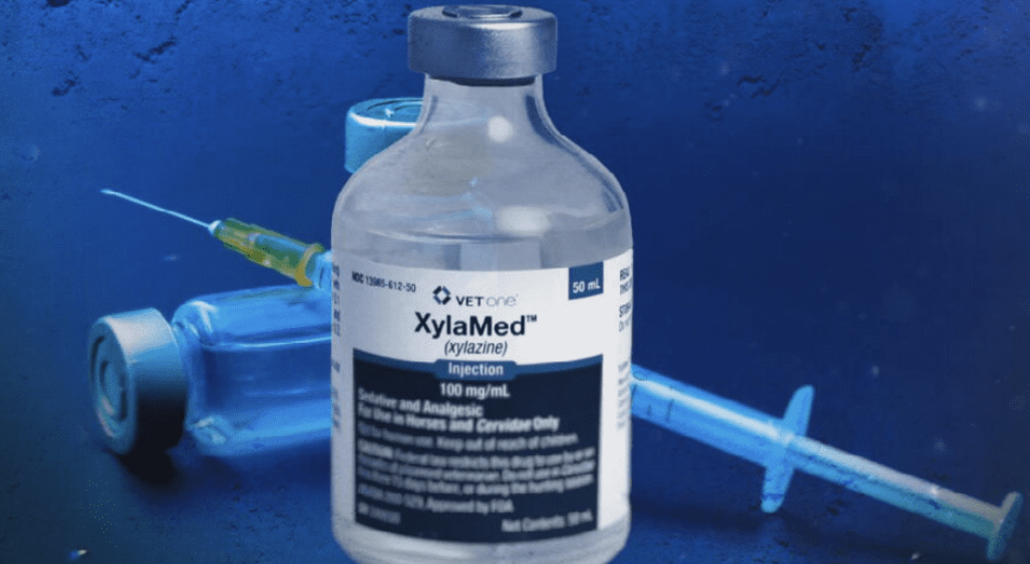Wondering if insurance covers Suboxone treatment? The answer is generally yes, but coverage depends on your specific insurance plan. This article breaks down which types of insurance may cover Suboxone and whether it does insurance covers suboxone treatment, what costs you might expect, and how to verify your coverage.
Key Takeaways
- Suboxone treatment coverage varies based on insurance type, with Medicaid, Medicare, and private plans often providing support, but specifics can differ by state and provider.
- Out-of-pocket costs for Suboxone treatment can range significantly, and patients should be aware of factors like copayments and the difference between in-network and out-of-network providers.
- Telemedicine for Suboxone treatment has gained widespread acceptance post-COVID, with many insurance plans now covering virtual services, enhancing access for those in need.
Which insurance types cover Suboxone?
Insurance coverage for Suboxone treatment can be diverse and sometimes confusing. Coverage may come from:
- Medicaid
- Medicare
- Private insurance plans
- ACA marketplace options Coverage specifics often vary by provider and state regulations.
Major health insurance providers like Aetna, Anthem, and Blue Cross Blue Shield often include Suboxone treatment in their plans, but the extent of coverage can vary. Being aware of the nuances of each insurance type can help you navigate your coverage options and secure necessary treatment for opioid use disorder.

Medicaid coverage for Suboxone
Medicaid generally covers Suboxone for opioid use disorder, though specifics vary by state. To learn more, see our full guide on will Medicaid cover Suboxone. Most state Medicaid programs include Suboxone in their formularies, often preferring generics. States may also require prior authorization or proof of medical necessity.
Beyond medication, many states extend Medicaid coverage to include behavioral health services and mental health services for substance use disorders, providing a more comprehensive approach to treating conditions like Suboxone addiction. Check your state’s Medicaid website or contact Medicaid services to verify your specific coverage.
Medicare Suboxone benefit
Medicare can cover suboxone treatment under its prescription drug benefit, especially through Medicare Part D plans. Coverage specifics, including formulations and copays, depend on the plan’s formulary.
Additionally, Medicare covers Opioid Use Disorder treatment services, including medications like buprenorphine, when provided through a Medicare-enrolled Opioid Treatment Program to treat opioid use disorder. Medicare Advantage Plans, which are alternative options to traditional Medicare, must also cover these services but may require the use of in-network facilities.
Having both Medicare and Medicaid can further minimize costs, making treatment more accessible and affordable.
Private insurance and employer-sponsored plans
Private and employer-sponsored insurance plans often cover Suboxone, though specifics vary between providers. These plans usually require prior authorization, needing a physician’s justification for medical necessity.
Under the Affordable Care Act, many individual and small group insurance plans are required to cover treatment for substance use disorders, which includes Suboxone. However, patients might still face out-of-pocket expenses like copays or coinsurance, depending on their specific insurance plan.
Review your policy details to understand your total cost coverage and any additional costs.
ACA marketplace and parity laws
The ACA significantly impacts addiction treatment coverage, including Suboxone. It mandates marketplace insurance plans to cover mental health and substance use disorder services equally with other medical benefits, ensuring baseline coverage for medications like Suboxone.
Parity laws aim to eliminate insurance coverage discrimination between physical and mental health conditions, providing comprehensive support for mental health parity, the Addiction Equity Act, and addiction treatment, including mental illness.
What costs are involved even with insurance?
Despite insurance coverage, Suboxone treatment may involve out-of-pocket expenses like copayments, deductibles, and coinsurance. Costs vary significantly based on whether your provider is in-network or out-of-network, making it crucial to understand these potential expenses to manage your treatment budget effectively.
In-network providers typically offer more affordable rates due to pre-negotiated agreements with insurance companies, while out-of-network providers may result in higher costs. Awareness of these distinctions helps in making informed decisions about treatment options and financial planning.

Typical Suboxone costs with insurance
Out-of-pocket costs for Suboxone treatment typically range from $100 to $300 per month, depending on the insurance plan. Medicaid or Medicare users might pay as little as 10 cents a day, while private insurance holders may pay around $1.82 daily. Understanding suboxone treatment costs can help individuals plan for their expenses.
Costs can vary based on medication form (tablet or film), prescribed strength, and pharmacy location. Patients can explore manufacturer assistance programs and third-party coupons to lower Suboxone costs regardless of insurance coverage.
Prior authorization and refill limits
Many insurance plans require prior authorization before covering Suboxone prescriptions, potentially delaying access. This process requires health plan approval for medications. Some states may also impose requirements like dosage maximums and mandatory therapy sessions.
Studies indicate that eliminating prior authorization can improve patient engagement in treatment and decrease overdose risks. Being aware of these hurdles can help patients and healthcare providers navigate the approval process more efficiently with FDA approved medications.
Does insurance cover Suboxone telemedicine programs?
The COVID-19 pandemic has increased the prevalence and acceptance of telemedicine for Medication-Assisted Treatment (MAT), including Suboxone. Many health insurance plans now cover telemedicine services for Suboxone, allowing remote care.
This shift has made it easier for patients to access necessary treatment without the need for in-person visits, especially for those exploring options for getting Suboxone treatment online. Knowing how your insurance plan handles telemedicine helps you take advantage of these convenient treatment options.

Telehealth MAT coverage post-COVID
Post-COVID, many states have expanded telehealth coverage to include MAT for opioid use disorders and opioid addiction. Federal regulations during the pandemic allowed buprenorphine prescriptions to start through telehealth without prior in-person evaluations, increasing patient engagement and satisfaction.
Studies indicate that telehealth can improve retention in treatment and sometimes achieve better engagement rates than in-person visits. However, challenges like feelings of isolation and difficulties in establishing connections with healthcare providers remain.
Virtual MAT providers accepted by insurers
Many virtual MAT providers are now recognized by major insurance companies, facilitating remote access to Suboxone treatment. Providers like Bicycle Health, Workit Health, and online Suboxone doctors such as Firepit Health accept various insurance plans, including Medicaid, making these services more accessible.
Online suboxone clinic usually have lower operational costs, resulting in reduced treatment fees compared to traditional clinics. Patients can also schedule appointments more flexibly, fitting therapy into their daily lives more easily.
Increased accessibility and convenience can make a significant difference for those seeking treatment.
Common exclusions and limitations in coverage
Despite insurance coverage for Suboxone, common exclusions and limitations exist. Some policies may exclude medications deemed experimental or not medically necessary. Many health plans have formularies that might exclude specific medications for substance dependence, limiting access.
Being aware of these barriers can help patients and healthcare providers navigate health insurance coverage complexities more effectively.
Formulary exclusions
Insurance formularies list medications covered by a health plan, and Suboxone may not always be included. Some plans may exclude buprenorphine, affecting access for those seeking treatment. If Suboxone is not on a formulary, patients might face higher costs or need to explore Suboxone alternatives that are more readily covered.
Prior authorization is often required for Suboxone, especially for brand-name prescriptions when generics are available. Knowing your plan’s formulary can help anticipate and address potential coverage issues.
Limitations on treatment length
Some insurers limit the duration of Suboxone treatment, requiring periodic reauthorization for continued coverage. These caps vary by state and may necessitate regular reviews. Such requirements can disrupt care if not managed properly, making it important to stay informed about your plan’s policies.
Regular communication with your healthcare provider can help navigate these limitations and maintain consistent access to a treatment provider.
How to verify your Suboxone coverage
To verify your Suboxone coverage:
- Contact your insurance provider to inquire about specific benefits.
- Confirm coverage details before starting treatment to understand potential out-of-pocket costs.
- Ensure you meet all necessary requirements.
Proactively verifying your coverage can save time and reduce stress, ensuring a smoother treatment process.
Contacting your insurer
When contacting your insurer, inquire about Suboxone coverage details, including any copays or deductibles. Have your insurance policy number and member ID ready for quicker assistance.
Ask specifically about preferred providers, as using in-network providers can significantly reduce your out-of-pocket costs. Check if your insurance plan requires prior authorization for Suboxone prescriptions.
Many insurance companies provide online tools to assess coverage for specific treatments like Suboxone without direct contact.
Using online formulary tools
Insurance companies often offer online formulary tools to check if Suboxone is covered under your plan. These tools provide information such as:
- Whether Suboxone is included in your prescription coverage
- The tier level at which Suboxone is covered
- The cost difference, with generics typically costing less than brand-name drugs
Using these online resources helps identify alternatives to Suboxone that may be more readily covered. Consulting directly with your insurance provider can further clarify coverage specifics and potential out-of-pocket expenses.
What to do if Suboxone isn’t covered
If your insurance doesn’t cover Suboxone, several steps can help manage costs. Patients can appeal insurance decisions or explore alternative options like patient assistance programs or community resources for significant savings.
Knowing these options can help ensure you receive necessary medical treatment while you save money without overwhelming financial strain.
Manufacturer coupons and patient assistance
Many pharmaceutical companies, including Indivior, the manufacturer of Suboxone, offer assistance programs to help patients afford their medications. Uninsured patients may receive significant discounts, potentially saving over $170 monthly through manufacturer coupons. For those with private insurance, a copay assistance program can reduce their monthly cost to as low as $5.
These treatment programs are not available for patients using government insurance, such as Medicare or Medicaid. Exploring these options can lead to substantial savings and make treatment more accessible.
Sliding scale and MAT clinics
Community clinics and MAT providers often offer care with the following payment options:
- Sliding scale fees
- Flat monthly fees
- Flexible payment options based on individual income or financial circumstances These options make treatment more affordable.
Sliding scale payment options can significantly reduce treatment costs for those with limited financial means. Seeking out these resources helps patients find affordable, effective treatment options and cost assistance at varying levels that fit their budget.
Bottom Line: Does insurance cover Suboxone treatment?
Understanding insurance coverage for Suboxone treatment is crucial for managing opioid use disorder effectively. From Medicaid and Medicare to private insurance and ACA marketplace plans, each type of insurance offers different levels of coverage and requirements. Even with insurance, patients may face out-of-pocket costs and need to navigate prior authorization hurdles. Telemedicine options have expanded, making treatment more accessible, but common exclusions and limitations in coverage still exist. By verifying your coverage and exploring alternatives if Suboxone isn’t covered, you can ensure you receive the necessary treatment. Remember, staying informed and proactive can make all the difference in your recovery journey.
FAQs about whether insurance covers Suboxone treatment
Does Medicaid cover Suboxone in all states?
Medicaid does cover Suboxone in all states, though coverage specifics, such as prior authorization and preferred formulations, can differ by state. It's advisable to check your state's Medicaid guidelines for precise details.
Will I lose coverage if I stop taking Suboxone temporarily?
You typically will not lose coverage if you stop taking Suboxone temporarily; however, it’s important to consult your healthcare provider to understand your specific situation and any potential implications.
Is there a difference in coverage for Suboxone film vs. tablet?
Yes, there is a difference in coverage for Suboxone film versus tablets, as insurance plans may have varying coverage levels and associated costs for each form. It's essential to check with your specific plan for details.
What should I do if my insurance doesn’t cover Suboxone?
If your insurance doesn’t cover Suboxone, consider utilizing manufacturer coupons, patient assistance programs, and sliding scale medication-assisted treatment clinics to help manage your costs. These alternatives can significantly reduce your financial burden.
How can I verify my Suboxone coverage?
To verify your Suboxone coverage, contact your insurer directly and utilize their online formulary tools for detailed coverage information. This will ensure you have the most accurate and up-to-date details regarding your benefits.
















